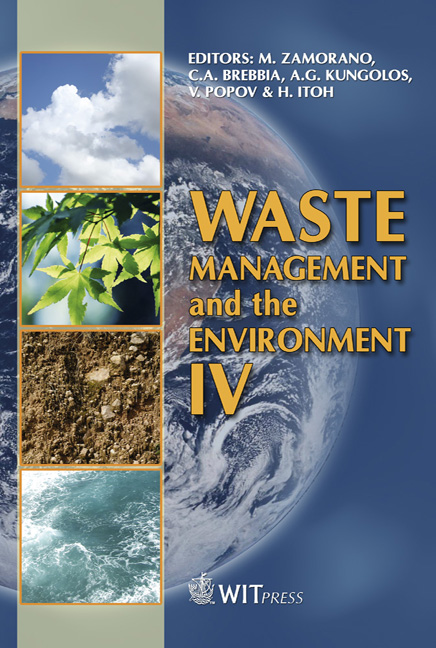Waste Management In The Built Environment On The Basis Of Decentralization And Integration Strategies: The ‘urban Metabolism’
Price
Free (open access)
Transaction
Volume
109
Pages
12
Page Range
51 - 62
Published
2008
Size
699 kb
Paper DOI
10.2495/WM080061
Copyright
WIT Press
Author(s)
A. van Timmeren
Abstract
Ecological and environmental conditions in and around cities are under pressure: transportation distances grow, protection and qualities diminish, and infrastructures (including management) get more complex, less robust and less visible, which result in a decline of sustainable commitment and behaviour of users. Yet, citizens are concerned that environmental degradation is affecting the quality of life in their neighbourhood. Resource reduction strategies and integrated waste management in close collaboration with urban planners, infrastructure developers, and representatives of key social groups are the basis to achieve environmental improvement. To do so the option of interconnection of the most important so called ‘essential flows’, especially waste related flows, energy, water and nutrients, at scales closer to users is argued to be necessary. This will be the guideline for urban planning based on the ‘urban metabolism’. This paper will focus on the options for improving the sustainability of the urban metabolism by interconnecting these essential flows and thus closing cycles at lower scale levels within the built-up environment (decentralization). This will be done from the perspective of the ‘sanitation flows’, consisting of waste water and solid waste flows in residential urban areas. After a short introduction on cycles existing sanitation infrastructures and waste management will be drawn up. Subsequently future developments will be analysed and form the basis of a new approach to waste in urban residential neighbourhoods. It promotes sustainable management of the environment and its resources through a renewed focus on waste flows (mostly ignored resources) in urban neighbourhoods and local ‘quality-cascading’, together with niche planning to improve knowledge on the interactions between natural resources, human activities, waste and environmental impact. The approach is illustrated with two case studies. Keywords: decentralized waste management, integration strategies, cycles.
Keywords
decentralized waste management, integration strategies, cycles.





